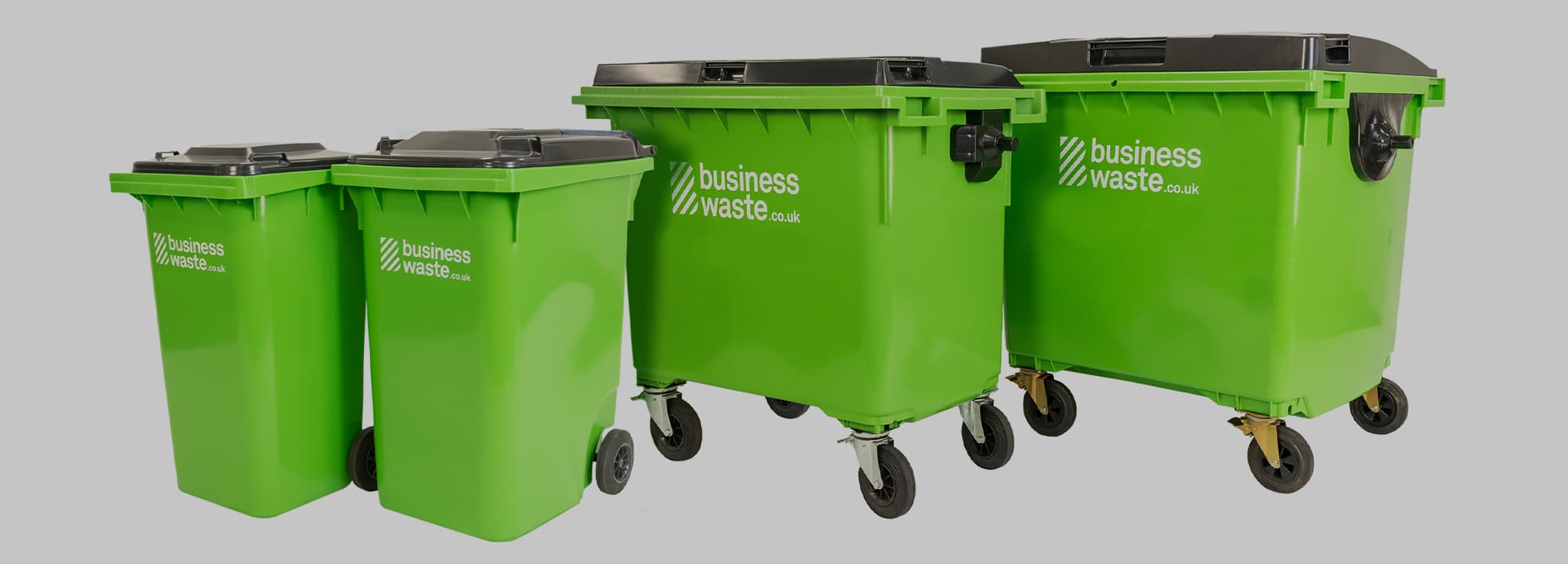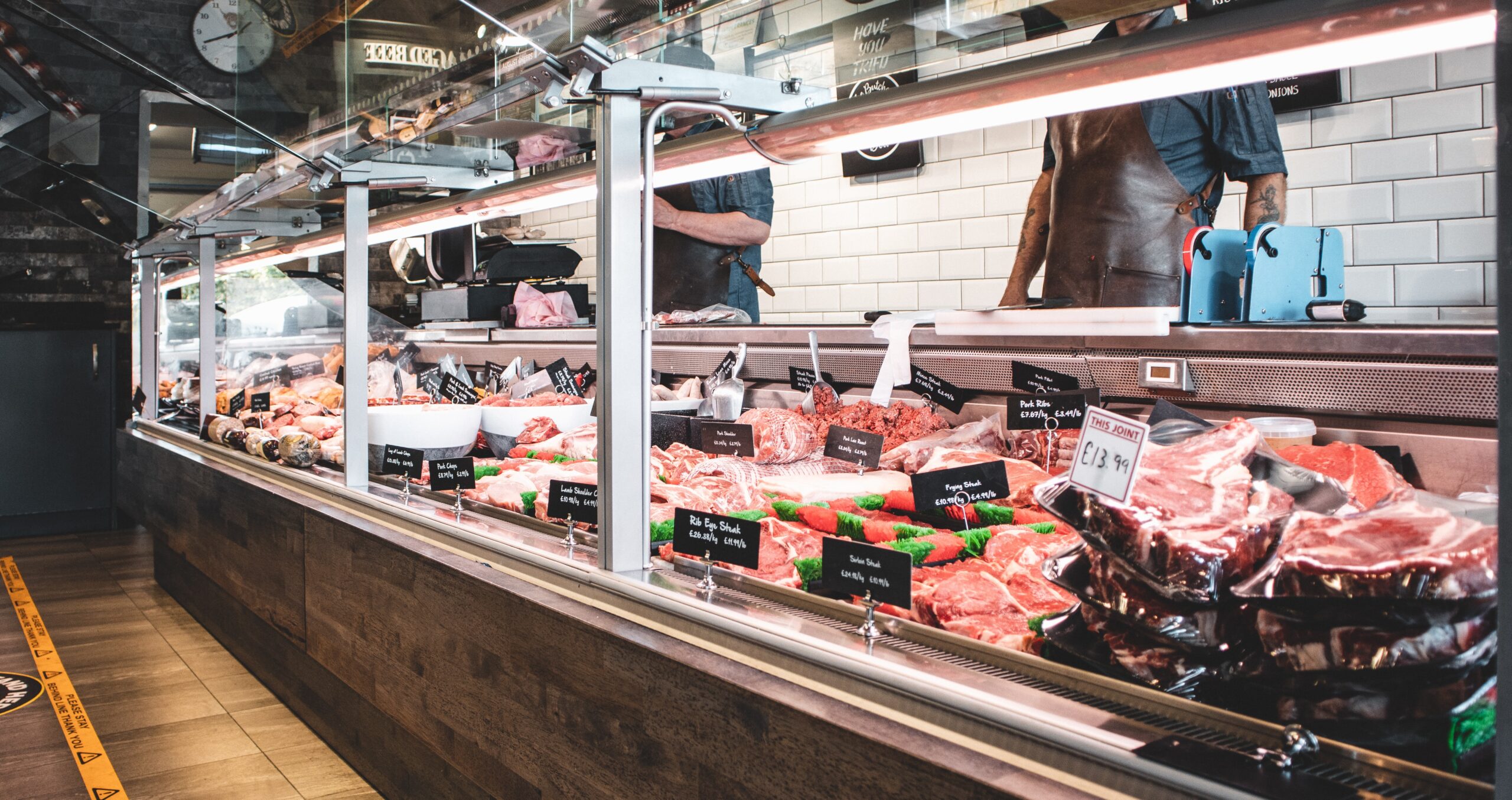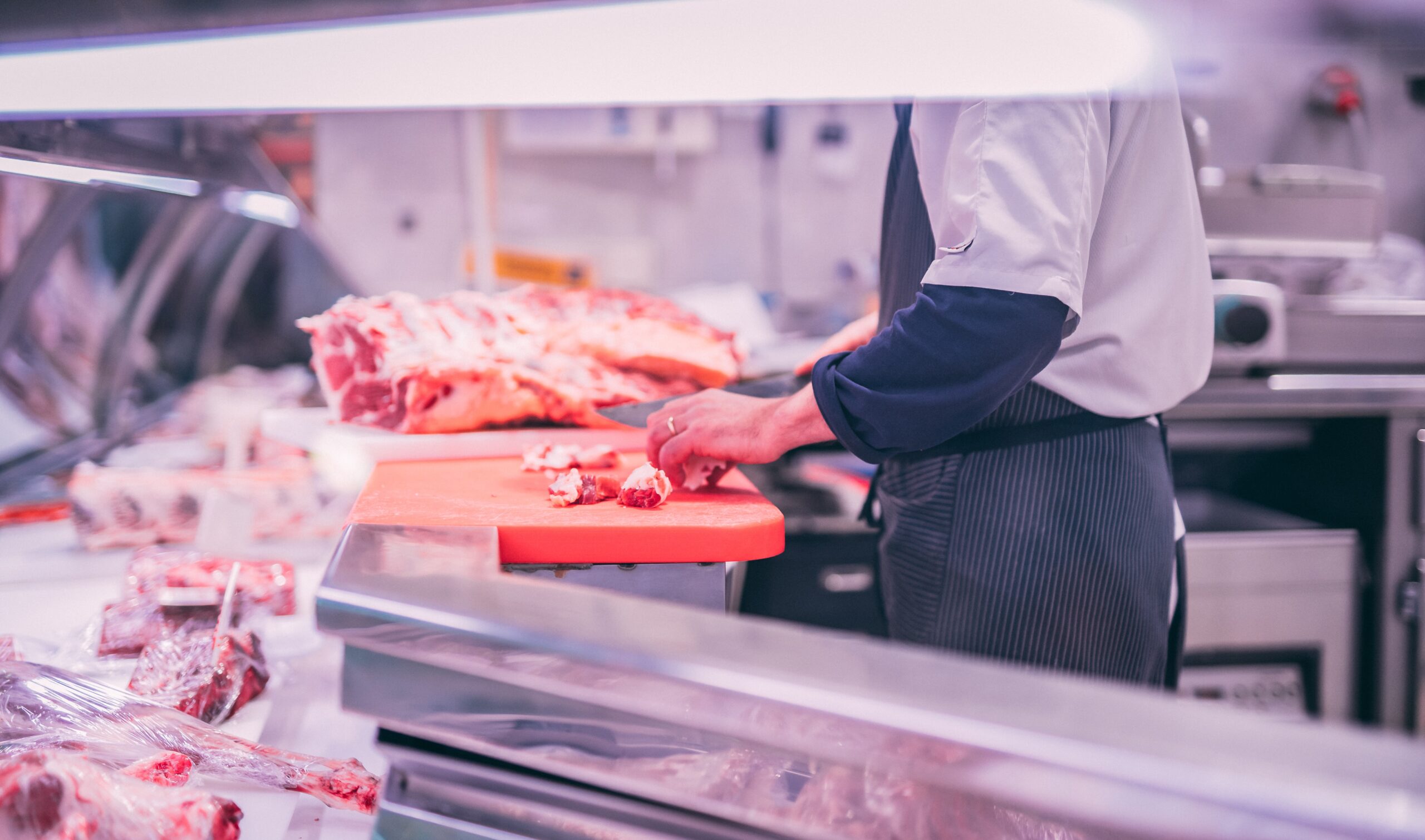
Butchers Waste Disposal
Butcher shops produce and sell all sorts of meat products, but when it comes to closing time, some unsold items end up being wasted. It’s an inevitable by-product of any butchers and as most of it’s meat waste derived from an animal or containing products of animal origin, it need disposing of in a way that avoids risking human or animal health.
Having a strong butchers waste management plan in place is vital to ensure your business upholds its legal and ethical responsibilities when it comes to dealing with meat waste. We can help you work towards both reducing the amount of waste meat you produce and get it collected and disposed of appropriately, alongside any other type of waste you generate.
Discover everything you need to know about butchers waste disposal and contact us online or call 0800 211 8390 today for a free quote. Arrange butcher waste disposal anywhere in the UK today.
Fast, Free Quotation
Get a fast FREE quote for your butchers waste
- Free quote within 1 hr
- Any type of meat waste
- FREE bins and delivery
- We cover all of the UK
What waste do butchers produce?
Most butchers waste is meat waste. This includes unsold and expired stock leftover at the end of the day, or inedible materials such as blood, bones, and unused fats. Meat waste produced at a butchers classes as both food waste and agricultural waste. As it’s no longer intended to be eaten by humans, it’s also referred to as former foodstuffs.
Beyond waste meat, a butcher’s shop can create other waste during its daily operations that require proper storage, collection, and disposal.
Other types of butchers waste include:
- General waste – non-recyclable rubbish, such as crisp packets and food scraps thrown away by employees and customers.
- Dry mixed recyclables – paper, card, and plastic (often used for packaging).
- Packaging waste – plastic trays, cling film, and other packaging used to store products and ingredients.
- Clinical and anatomical waste – PPE like masks and gloves, animal blood from meat.
- Butchers equipment – broken or damaged knives, meat slices, and mincing machines or WEEE products like fridges and freezers.
Meat disposal
There are three risk groups when disposing of former foodstuffs (which includes any waste meat). The risk level affects the appropriate disposal method. These risks are:
- Higher risk – raw meat, sausages, bacon, gammon, poultry, burgers, eggs, and partially cooked meat. This cannot go to landfill or be used for animal feed.
- Medium risk – any fully pre-cooked meat products or products containing cooked meat (such as pies), fats or dripping that came from cooking meat or poultry. These can go to landfill but cannot be used as animal feed.
- Lower risk – animal fats and fish oils, eggs or egg products, milk or milk products. These can go to landfill or be used as animal feed.
How you dispose of raw or partially cooked meat is important due to the hazards they introduce. If stored incorrectly, meat waste can present a serious threat to the health of your staff and customers – due to the way in which it harbours and spreads dangerous bacteria. As a result, you should ensure:
- All meat is stored in the appropriate containers, ideally in its original packaging.
- Meat waste and animal by-products are collected regularly by a licensed waste carrier, such as Business Waste.
- All your staff are aware of the proper storage procedures for waste meat at your butcher shop.
Butchers waste
bins
At Business Waste, we can provide you with free bins, bags, and containers to store all sorts of butchers waste – from animal by-products to recyclables. Using the right bin is essential to avoid any risk of contamination and help easily separate your waste types.
We can provide a wide range of bins in different sizes so you can get the ideal solution for your butchers. Plus, collection is available on a daily, weekly, or fortnightly basis. This means you can get the size, type, and collection schedule to tailor cost-effective butchers waste management for your business.
Explore the types of butchers bins available.
Butchers waste
collection
At Business Waste, we work closely with you to put together a waste collection schedule that aligns with your needs. How often you need collections depends on the amount and types of waste you produce. However, it’s important you don’t keep animal by-products on your premises for too long.
Therefore, you might want daily or weekly meat waste collection. For other forms of waste – such as WEEE products and paper recycling – less frequent collections may suit, such as fortnightly. We can help you work out the most effective and cost-efficient waste collection schedule and deliver the right type, size, and number of bins.
We pride ourselves on offering our customers excellent service across the board. Whether you’re located in a remote village or busy high street anywhere in the UK – we’ve got you covered. We can also arrange for butchers waste collection at a time that suits you to avoid interrupting your business and workday activities.
Call 0800 211 8390 or contact us online for a free quote today. One of our friendly and expert team can assess your butcher shop needs and advise on the best types and sizes of bins to use, alongside an appropriate collection schedule.
How does butchers
waste collection work?
-
Select your free bins
It’s quick and easy to organise commercial waste collection for your business.
Simply start by telling us the:
- Type of waste you need removing
- Size of bins you require
- Number of bins you want
We’ll provide you with a free quote.
-
Arrange delivery
When you’re happy with the type, number, and size of free bins, tell us when you need your bins delivering.
Let us know about any access issues where you want the bins delivering – such as locked gates, access codes and times. We’ll get you up and running in no time.
-
Fill up your bin
After the free bins arrive at your chosen location, fill them up with the agreed waste type.
Make sure you remain within any weight limits for the specific waste type and bin size.
-
Get your business waste collected
We’ll arrange waste collection at a time and frequency to suit you and the amount of waste you have.
As featured in…
Regulations for butchers
and waste meat disposal
Various legislations dictate how butchers must dispose of their waste. It’s essential that your business is aware of these and follows them when storing, disposing, and arranging collection of any waste you produce. The two main regulations that apply to waste from butcher shops are:
- The Animal By-Products (Enforcement) (England) Regulations 2013 – This legislation splits animal waste into three separate categories. Butcher’s waste falls under category 3 (carcasses or body parts passed fit for humans to eat, products originally meant for consumption but removed for commercial reasons). As such, butchers must ensure any products unsafe for consumption are not sold to customers and are instead stored securely before collection. They should also ensure that high risk materials, such as raw or partially cooked meat, are not sent to landfill sites.
- The Environmental Protection Act (1990) – This legislation aims to hold companies responsible for the waste they produce in the everyday running of their business, which includes any butcher’s whatever the size. It describes various steps you can take to minimise your impact on the planet, such as recycling waste where possible.

Meat waste
statistics
Every year about 263 million tonnes of meat is produced but sadly around one fifth of this goes to waste – that’s 53 million tonnes of meat waste. While this covers a range of meats, it’s the equivalent of 75 million cows dying.
Alongside the environmental impact, global meat waste has a high financial cost. Waste meat around the world ‘only’ accounts for about 4% of all food waste. However, it accounts for 20% of the economic cost for disposal and due to its weight contributes the most to greenhouse gases.
It’s not just butchers that create meat waste, households in the UK throw away around 240,000 tonnes of beef, pork, and poultry products (not including bones and fat) every year – worth an estimated £260 million. That’s more than 10% of purchases, which also means wasted resources involved in the production of meat products in the first place.
How to reduce
butchers waste
Reducing butchers waste at the source can save you a great deal of money when it comes to waste collection and disposal. It also means you can rest easy knowing you’re doing your part to help take care of the planet. Here are some simple ways you can reduce the waste your butcher shop produces:
- Better manage your stock – ensure meats are stored correctly to give them the best possible shelf life or are sold within an appropriate time frame.
- Keep track of best-selling products – produce or purchase these more often to meet demand.
- Monitor consumer behaviour – track common trends to predict a rise or drop in sales at certain times and adapt your stock levels to reflect this.
- Deliver appropriate training – ensure that all staff receive the appropriate training when it comes to meat waste management and disposal.
- Provide relevant bins and containers – allow access to various bins and containers to store and segregate meat and other waste before collection.
- Donate meat waste to charity – local animal shelters or zoos may take your meat waste for feed (animals are a bit more relaxed when it comes to best before dates, after all).

Read our reviews
James was very helpful and to be honest since starting with this company the service has been excellent.Christeen Norfolk
Waste meat
FAQs
-
Can you compost meat waste?
No, composting meat waste is not advised. It’s organic material that will decompose over time but if you put it in a compost bin at home or the workplace it can smell and attract pests, such as rats and flies. Raw and cooked meat waste also contains harmful bacteria that may spread in compost and contaminate nearby soil and water.
If you do want to try composting meat, then placing the scraps in the centre is best. This is known as hot composting, which means it’s surrounded by as much other material as possible to speed up the process and reduce the risk of contamination.
-
Can you put meat in food waste?
Yes, you can put meat in a food waste bin. Raw, cooked, and partially cooked waste meat and meat products class as food waste so can be thrown away with other leftover foodstuffs, such as fruit and veg, cereals, grains and more.
Use a dedicated food waste bin such as a Small business bin or 240 litre wheelie bin – as meat waste cannot go in general waste.
-
Is meat organic waste?
Yes, meat waste is a form of organic waste – as it comes from an animal and is biodegradable (even though composting is not advised). As organic waste this means it breaks down over time but during the process meat waste can release lots of methane. This greenhouse gas is harmful to the environment, so proper disposal is important.
-
Is rotting meat hazardous waste?
Rotting meat isn’t classed as hazardous waste, so you can throw it away with other food waste. However, you may want to put it in a separate waste bag to avoid contamination. This is because in some cases, rotting meat can be contaminated with something pathogenic – such as bacteria and toxins.
There are no specific bins or bags for rotting meat – though we do provide dedicated hazardous waste bags for clinical waste.
-
How much meat goes to waste every year?
Around the world 53 million tonnes of meat goes to waste every year. That works out at around 20% of global meat production being lost or wasted. In the UK alone, households throw out a staggering 570,000 tonnes of fresh meat (including pork, beef, poultry, seafood, and more) annually.
Get a fast and free quote
Get a fast FREE quote for your butchers waste collection
- Free quote within 1 hr
- Any type of butchers waste
- FREE bins and delivery
- We cover all of the UK